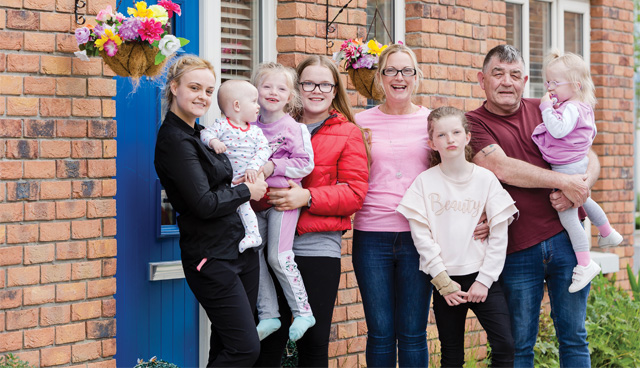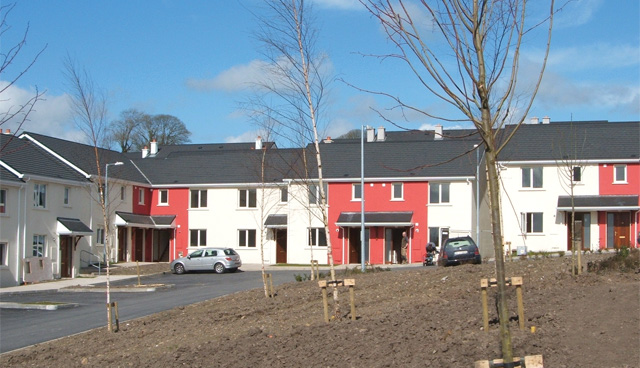
Delivering on our promise
22nd July 2020
Myriad of different housing solutions required to meet needs of Ireland’s demographics
22nd July 2020Reclassifying approved housing bodies

In 2018, Eurostat, the EU’s statistics office, and the Central Statistics Office (CSO) deemed 14 of Ireland’s largest approved housing bodies (AHBs) to be part of the general government sector, a decision that has caused frustration in the realm of AHBs ever since but there is new hope that frustration could be coming to an end.
The decision to reclassify the status of AHBs, which were previously regarded as “non-profit institutions serving households”, was taken due to the fact that the bodies use public money to provide public housing at a price lower than the market average. Functionally, what this reclassification means is that all money received by AHBs is currently regarded as government spending and is included on all government balance sheets.
This came despite an estimate by Circle Housing Association CEO John Hannigan that only 25 per cent of AHB funding has come from government funds since 2010, with the remaining 75 per cent borrowed by the AHBs themselves. Reclassification means that this 75 per cent, typically borrowed from banks by the bodies, now counts as government spending on balance sheets, which must be balanced in compliance with EU rules.
Practically, this has meant that funding for AHBs has been left to compete in government budgets with high profile projects such as the National Children’s Hospital, the MetroLink and the National Broadband Plan, even when the prospective funding has not been government sourced. It has become the single most pressing issue for the delivery of housing by AHBs, with Halligan saying in 2019 that the bodies were “beginning to see a small slowdown in the delivery of housing” as outside investors began to step away due to a lack of potential return on investments and the rumoured possibility of more controls being introduced.
Around one-third of the 50,000 homes scheduled to be delivered by Rebuilding Ireland are expected to come from the AHB sector, but the sector has been warning that this aim will not be achieved on time unless the topic of classification is tackled head on. In July 2019, the Oireachtas Joint Committee on Housing was told by Declan Dunne that the AHBs will “inevitably” provide less social housing in the coming years because of the decision to classify their funding as purely governmental.
Dunne, the Chairman of the Housing Alliance (a conglomerate of six of Ireland’s largest AHBs: Circle, Clúid Housing, Co-operative Housing Ireland, Oaklee Housing, Respond and Tuath Housing) said to the committee: “This will have negative consequences for the funding of Approved Housing Bodies in the medium to long term, limiting the capacity of Housing Alliance members to source funds from government or external sources. This will inevitably, over the next couple of years result in a reduction in social housing output provided by Approved Housing Bodies.”
Dunne also said that then Minister for Housing Eoghan Murphy TD was supportive of efforts to return the AHBs to their non-profit status, but that little progress had been made politically against the EU ruling since it had been made in March 2018. In 2018, the AHBs delivered 3,219 homes that were either built, bought or leased, representing 40 per cent of the State’s social housing output.
Further, Dunne told the committee: “The urgency is very real and very immediate but I think it would be fair to say when this judgement came down initially, many of us would have been of the view that we did have time because there was significant funding in place. We are in the position where that window is closing.”
Donal McManus, Chief Executive of the Irish Council for Social Housing also told the Housing Committee that most EU member states have their housing associations off balance sheet and the Departments of Housing and Finance would ned to change legislation, regulation and financing to deal with the issue. He also recommended the foundation of a dedicated working group between government and affected parties to deal with the issues.
“This will have negative consequences for the funding of Approved Housing Bodies in the medium to long term, limiting the capacity of Housing Alliance members to source funds from Government or external sources. This will inevitably, over the next couple of years result in a reduction in social housing output provided by Approved Housing Bodies.” — Declan Dunne, Housing Alliance Chairman
By May 2020, little progress had been seen on the front of classification and the issue was central to an online briefing of Oireachtas members presented by the Housing Alliance. In the briefing, open to all Oireachtas members, the Alliance set out four priorities to “ensure social and affordable housing is delivered” while the Covid-19 crisis continues, the fourth of which was “a commitment from government to a time-lined action plan to ensure the classification of AHBs as being on the Government’s balance sheet is reversed”.
Speaking after the briefing, Dunne repeated the arguments he had made in the summer of the year previous, saying that “failure to secure this reclassification will restrict funding available to AHBs, and impact on the output of more social and affordable homes” and that the plan was “urgently needed to restore AHBs to their former classification”.
Partly to blame for the reclassification of the AHBs is the lack of existing government legislation regulating the sector; while only 14 AHBs have been reclassified by the decision of Eurostat and the CSO thus far, government figures show that there are 552 registered AHBs in Ireland, only 260 of which signed up to a voluntary code of conduct that was introduced in anticipation of statutory regulation. Paul Lemass, Assistant Secretary at the Department of Housing, said that the Department believed that a great deal of those who had not signed up were inactive and that the Department was in the midst of carrying out a de-listing exercise.
These figures were released as part of the Oireachtas joint committee meetings, with it also being revealed that the AHB sector had received €2 billion in government funding between 2009 and September 2019, all while being unregulated.
This anomaly was ended in December 2019, when the Housing (Regulation of Approved Housing Bodies) Act 2019 was passed in order to “provide for the regulation of Approved Housing Bodies for the purposes of protecting certain housing assets provided or managed by such bodies”. The Approved Housing Bodies Regulatory Authority will also be established in order to oversee the regulation of the sector.
Given that the authority will also play a role in AHB financial management, it could be reasonably hoped that this will be the vehicle through which the classification issue. The Programme for Government arrived at by Fianna Fáil, Fine Gael and the Green Party has led to renewed hope for reclassification in the AHB sector, with an explicit commitment from the new Government to work with AHBs “to ensure they can access finance and move off balance sheet” contained therein. The Housing Alliance said in a statement that they were “extremely encouraged” by this and that they “look forward to working with Government, on a time-lined action plan to restore AHBs to our former off balance sheet classification”.





